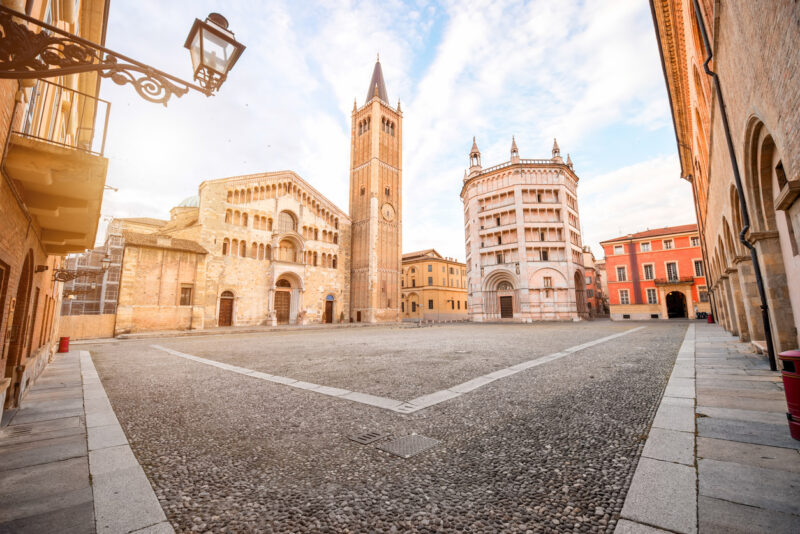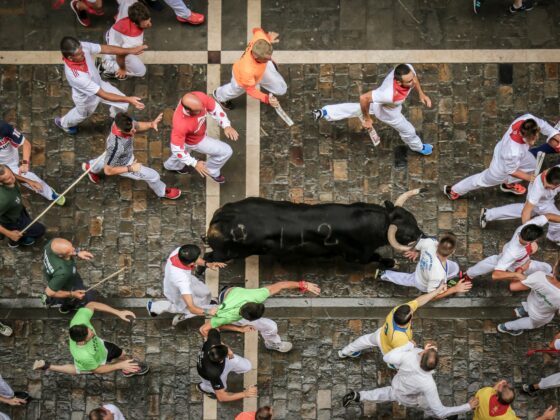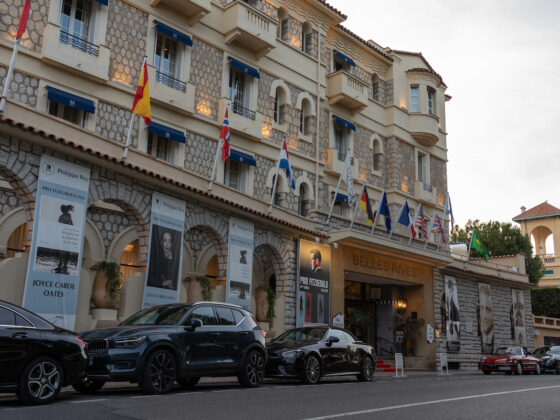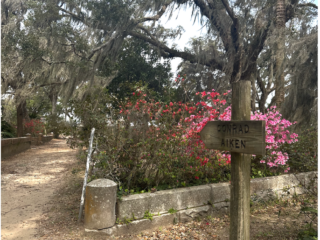I first discovered Italo Calvino, through my brother. He and I share a love of literature. As an older brother, he always took it upon himself to educate his little sister. I still remember the afternoon when we sat in his living room, hiding from the hot summer day. He bore a smile, that resembled that of a kid in a chocolate factory. He could not stop raving about this fantastic book he had finished the night before that still haunted his thoughts and imagination.
“I want to share that feeling,” I told him, eager and impatient.
The book was small and unimposing with a pale pastel green cover. Its edges were worn out and pages were tainted with innocent, accidental smudges. Imprints of the readers before us.
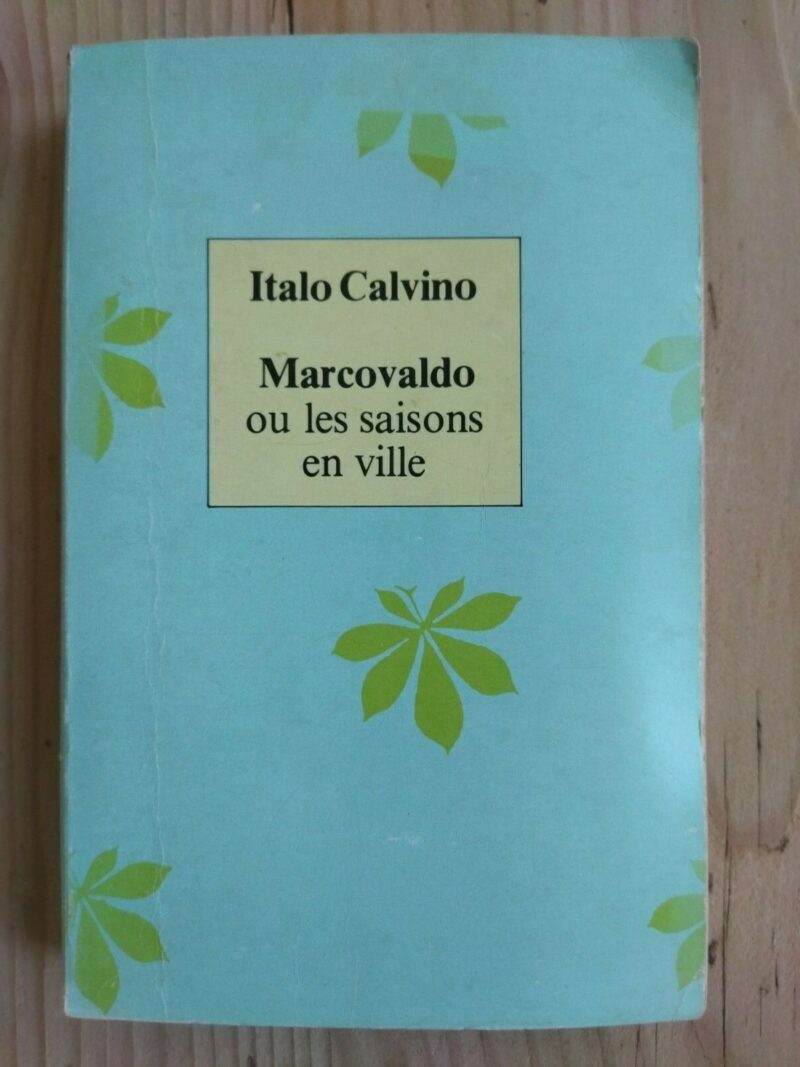
“You should take your time to read it,” he advised. “It’s a book meant to be savored.”
It took him six months to finish a book of less than 200 pages.
That night, I discovered Italo Calvino through the unfortunate adventures of “Marcovaldo.”
Although I understand, what my brother meant, I devoured the book rather than savoring it through a six-month-long course.
My brother has always been and will always be a nibbler whereas I am a glutton. It’s a sin I proudly flaunt in matters of literature. The second page of Marcovaldo painted a smile across my face, as I found myself rejoicing with the character in the discovery of mushrooms. It was delightful. The whimsy and playful tone of the writing transport you into a time when you were a child, with imaginative penmanship. When an author manages to magnify the mundane and give it the importance it craves it’s a reminder to not take certain things for granted in life.
Italo Calvino was gifted with the ability to create worlds mirroring desired reality. This can be seen in “Invisible Cities,” where he depicted Venice through different points of view.
“Marcovaldo, or the Seasons in the City,” reflects the struggles of a man in Northern Italy at a time when the country was struggling with political changes. In his book Mr. Calvino, tries to reconcile forgotten nature with modernity through the bittersweet short stories of an Italian peasant. It feels both light and heavy. You cannot help but connect with the character, who for better or worse, grapples with a changing world.
The realization that his life would know no other setting beyond trams, traffic lights, rooms in the half-basement, gas stoves, drying laundry, warehouses, and shipping rooms, made the film’s splendor fade for him to a worn and gray sadness. -Italo Calvino, Marcovaldo.
I have come to see Northern Italy and I have come to see it through Marcovaldo’s eyes with child-like wonder.
My trip to Italy was orchestrated by a friend of mine. I followed her through the motions, as I was finishing the last of my exams the day before. Unlike her, I wasn’t in the right mindsight of an eager traveler, as I was sleep-deprived, hungry, and on the verge of hallucinating. I arrived in Milan at one in the morning feeling much like Marcovaldo did following his “Park Bench Vacation,” with sticky eyes and a stiff back.
The following day, our first destination was no longer than 90 minutes by train from Milan. The birthplace of Parmigiano, Parma awaited us. The charming city welcomed us, with its picturesque old-world architecture. Only a 15-minute walk from the train station, the Piazza Duomo, gathers monuments such as its famous Cathedral and San Giovanni Baptistery. When we arrived, the sun was at its peak, and we were lucky to witness the piazza at this time of day. When touched by the sunrays, the center of Parma mimics the reddish-yellow sands of a desert.
Later that afternoon, my friend and I tucked ourselves away in the confines of one of the many narrow streets of Parma where we enjoyed the delicacies of the region. Italo Calvino did not bring me to Italy, but my friend did. However, I was reminded of my love for the author as I sat on the terrace savoring freshly grated parmesan, so I thanked her for dragging me along.

Our next adventure in Italy proved to be a stark contrast to the sandy tones of Parma. This time we boarded the train destined for Como.
Lake Como holds its popularity for good reason with its crystal-clear water encircled by a lush mountain range. Although it is mainly known for the lavish lifestyle it holds and its various multicolored villas, my friend and I were captivated by the beauty offered by the lake. We ventured only a few meters down the bustling street bordering the water in search of gelato. The rest of the day ended with us lazing by under the sun, without a care for the melee of people surrounding us.

The summer I read my first Italo Calvino; my sister moved to Thailand. As a parting gift, my brother thought it would be fitting to give her another of Italo Calvino’s works, “Invisible Cities.”
“During your time abroad, I want you to look for places that resemble the cities of Calvino.”
The suggestion was not intended for me, yet, unashamed, like a thief, I stole it for myself.
“Invisible Cities,” like many of Calvino’s works, is a collection of stories that transport readers to unimaginable worlds. The novel is a dialogue between Marco Polo and Kublai Khan. It is both fiction and reality as Marco Polo describes each city to Kublai Kahn. As you near the end, you come to realize that all the cities are in fact one described from different perspectives. When traveling (or not) you come to understand the meaning behind the rich imagery Marco Polo makes you dream of.
I try to find a version of Italo Calvino’s stories wherever I go. And I surprise myself when I look no further than Debrecen, Hungary. A city that fools tourists and foreigners to fall into the traps of its monotonous world. But I have come to understand that it can be appreciated even under bleak gray skies.
In Invisible Cities, Anastasia is a city described as a malignant trap much like how some feel about Debrecen.
“The city appears to you as a whole where no desire is lost and of which you are a part, and since it enjoys everything, you do not enjoy, you can do nothing but inhabit this desire and be content.”
Despite the trap, I appreciate the seemingly endless forest of Debrecen and rejoice in sprouting mushrooms like Marcovaldo would.
I pass along my brother’s words because I hope you can also find a parcel of your cities in Italo Calvino’s work.
“This is the aim of my explorations: examining the traces of happiness still to be glimpsed, I gauge its short supply.” – Italo Calvino, Marco Polo.

